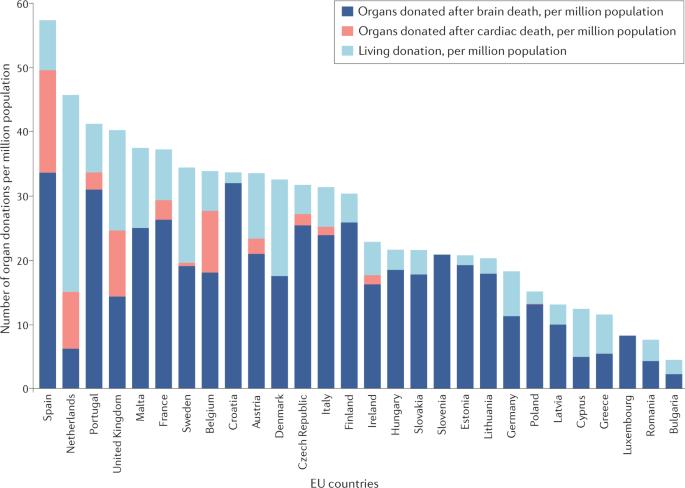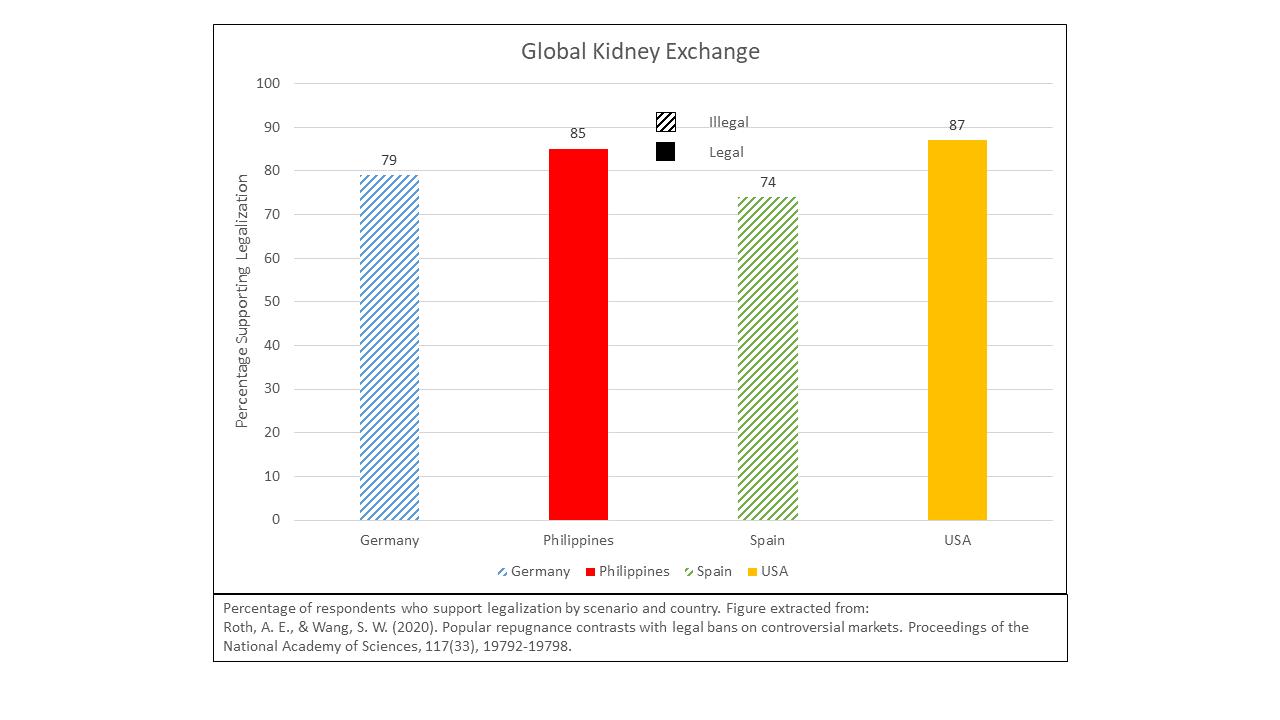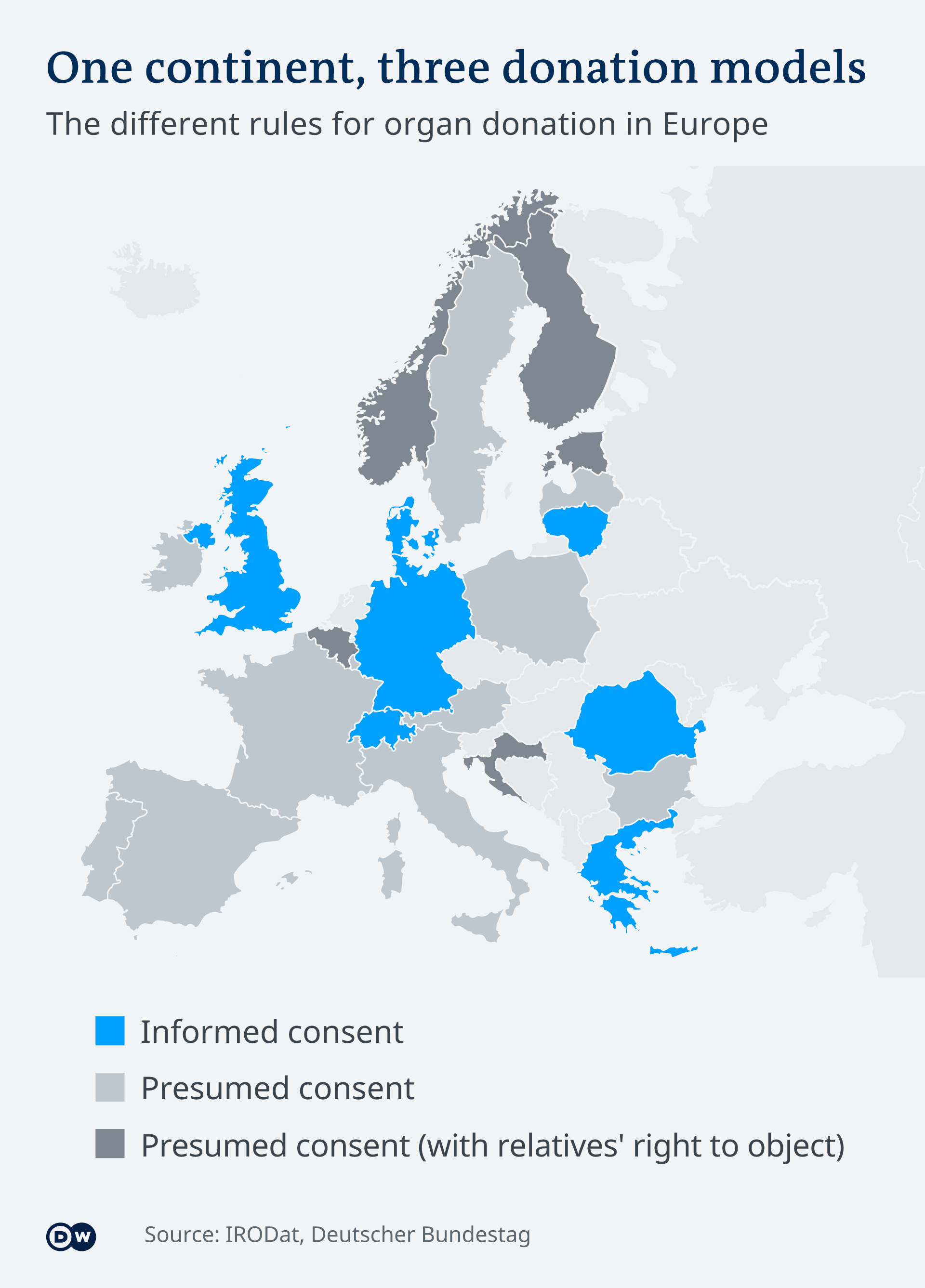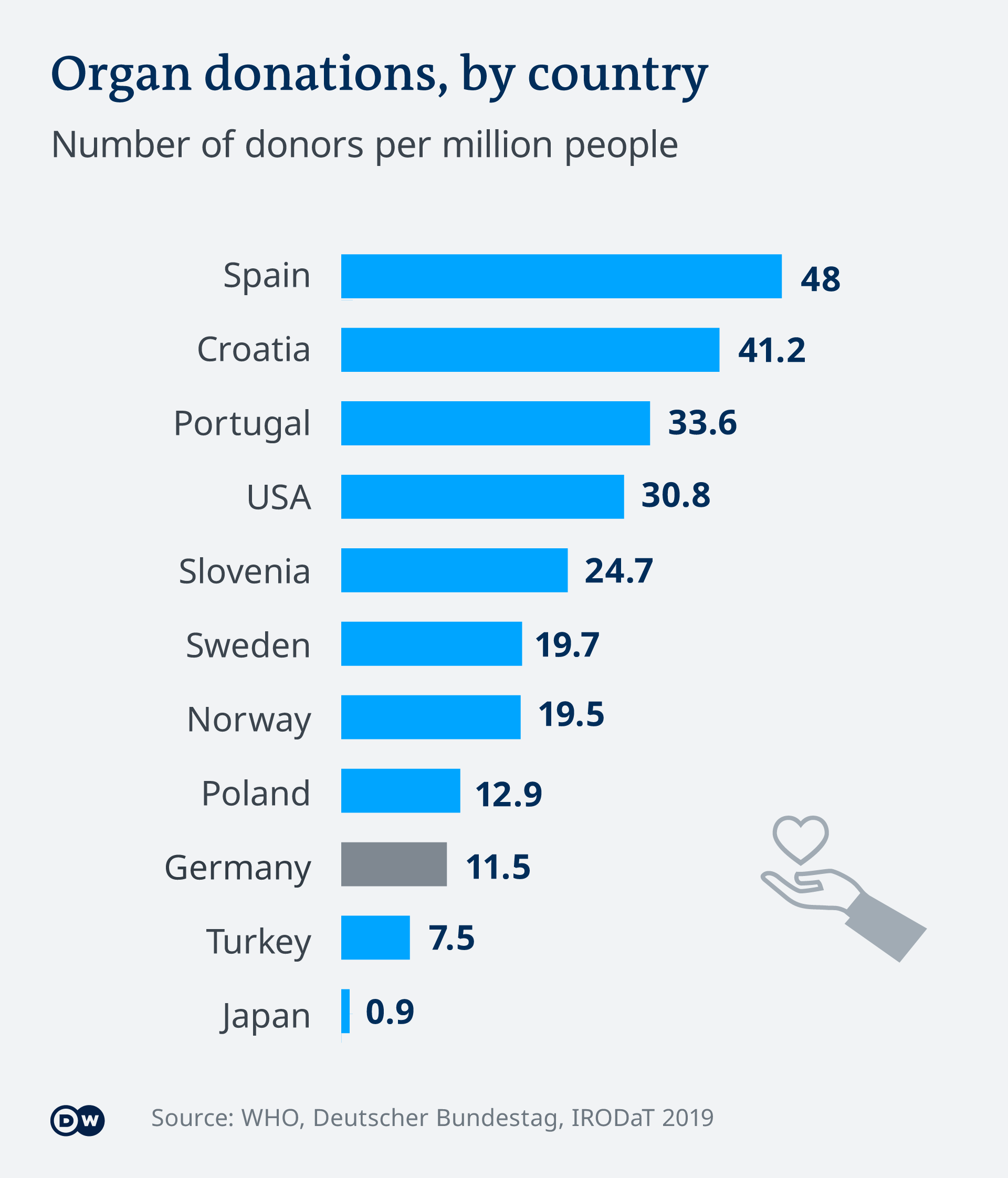The EU has proposed a strengthening of European prohibitions against compensating donors of "substances of human origin" (SoHOs). Here's an op-ed in VoxEU considering how that might effect their supply.
Consequences of unpaid blood plasma donations, by Axel Ockenfels and Alvin Roth / 4 Nov 2023
"The European Commission is considering new ways to regulate the ‘substances of human origin’ – including blood, plasma, and cells – used in medical procedures from transfusions and transplants to assisted reproduction. This column argues that such legislation jeopardises the interests of both donors and recipients. While sympathetic to the intentions behind the proposals – which aim to ensure that donations are voluntary and to protect financially disadvantaged donors – the authors believe such rules overlook the effects on donors, on the supply of such substances, and on the health of those who need them.
"Largely unnoticed by the general public, the European Commission and the European Parliament’s Health Committee have been drafting new rules to regulate the use of ‘substances of human origin’ (SoHO), such as blood, plasma, and cells (Iraola 2023, European Parliament 2023). These substances are used in life-saving medical procedures ranging from transfusions and transplants to assisted reproduction. Central to this legislative initiative is the proposal to ban financial incentives for donors and to limit compensation to covering the actual costs incurred during the donation process. The goal is to ensure that donations are voluntary and altruistic. The initiative aims to protect the financially disadvantaged from undue pressure and prevent potential misrepresentation of medical histories due to financial incentives. While the intention is noble, the proposal warrants critical analysis as it may overlook the detrimental effects on donors themselves, on the overall supply of SoHOs, and consequently on the health, wellbeing, and even the lives of those who need them. We illustrate this in the context of blood plasma donation.
"Over half a century ago, Richard Titmuss (1971) conjectured that financial incentives to donate blood could compromise the safety and overall supply. This made sense in the 1970s, when tests for pathogens in the blood supply were not yet developed. But Titmuss’ conjecture permeated policy guidelines worldwide, despite mounting evidence to the contrary. Although more evidence is needed, a review published by Science (Lacetera et al. 2013; see also Macis and Lacetera 2008, Bowles 2016), which looked at the evidence available more than 40 years after Titmuss’ conjecture, concluded that the statistically sound, field-based evidence from large, representative samples is largely inconsistent with his predictions.
"Getting the facts right is important because, at least where blood plasma is concerned, the volunteer system has failed to meet demand (Slonim et al. 2014). There is a severe and growing global shortage of blood plasma. While many countries are unwilling to pay donors at home, they are willing to pay for blood plasma obtained from donors abroad. The US, which allows payment to plasma donors, is responsible for 70% of the world’s plasma supply and is also a major supplier to the EU, which must import about 40% of its total plasma needs. Together with other countries that allow some form of payment for plasma donations – including EU member states Germany, Austria, Hungary, and the Czech Republic – they account for nearly 90% of the total supply (Jaworski 2020, 2023). Based on what we know from controlled studies and from experiences with previous policy changes, a ban on paid donation in the EU will reduce the amount of plasma supplied from EU members, prompting further attempts to circumvent the regulation by importing even more plasma from countries where payment is legal. At the same time, a ban will contribute to the global shortage of plasma, further driving up the price and making it increasingly unaffordable for low-income countries (Asamoah-Akuoko et al. 2023). In the 1970s, it may have been reasonable to worry that encouraging paid donation would lead to a flow of blood plasma from poor nations to rich ones. That is not what we are in fact seeing. Instead, plasma supplies from the US and Europe save lives around the world.
"In other areas, society generally recognises the need for fair compensation for services provided, especially when they involve discomfort or risk. After all, it is no fun having someone stick a needle in your arm to extract blood. This consensus cuts across a range of services and professions – including nursing, firefighting, and mining – occupations, most people would agree, that should be well rewarded for the risk involved and value to society. To rely solely on altruism in such areas would be exploitative and would eventually lead to a collapse in provision. Indeed, to protect individuals from exploitation, labour laws around the world have introduced minimum compensation requirements rather than caps on earnings. In addition, payment bans on donors, even if they’re intended to protect against undue inducements, raise concerns about price-fixing to the benefit of non-donors in the blood plasma market. In a related case, limits on payment to egg donors have been successfully challenged in US courts. 1
"In addition, policy decisions affecting vital supplies such as blood plasma should be based on a broad discourse that includes diverse perspectives and motivations. Ethical judgements often differ, both among experts and between professionals and the general public, so communication is essential (e.g. Roth and Wang 2020, Ambuehl and Ockenfels 2017). Payment for blood plasma donations is an example. We (the authors of this article) are from the US and Germany, countries that currently allow payment for blood plasma donations while most other countries prohibit payment. On the other hand, prostitution is legal in Germany but surrogacy is not, while the opposite is true in most of the US. And while Germany currently prohibits kidney exchange on ethical grounds, other countries – including the US, the UK, and the Netherlands – operate some of the largest kidney exchanges in the world and promote kidney exchange on ethical grounds.
"The general public does not always share the sentiments that health professionals find important (e.g. Lacetera et al. 2016). This tendency is probably not due to professionals being less cognitively biased. In all areas where the question has been studied, experts such as financial advisers, CEOs, elected politicians, economists, philosophers, and doctors are just as susceptible to cognitive bias as ordinary citizens (e.g. Ambuehl et al. 2021, 2023). Recognising the similarities and differences between professional and popular judgements, and how ethical judgements are affected by geography, time, and context, allows for a more constructive and effective search for the best policy options.
"In our view, the dangers of undersupply of critical medical substances, of inequitable compensation (particularly for financially disadvantaged donors), and of circumvention of regulation by sourcing these substances from other countries (where the EU has no influence on the rules for monitoring compensation to protect donors from harm) are at least as significant as those arising from overpayment. Carefully designed transactional mechanisms may also help to respect ethical boundaries while ensuring adequate supply. Advances in medical and communication technologies, such as viral detection tests, can effectively monitor blood quality and ensure the safety and integrity of the entire donation process – including the deferral of high-risk donors and those for whom donating is a risk to their health – without prohibiting payment to donors. Even if it is ultimately decided that payments should be banned, there are innovations in the rules governing blood donation that have been proposed, implemented, and tested that would improve the balance between blood supply and demand within the constraints of volunteerism; non-price signals, for instance, can work within current social and ethical constraints.
"As the EU deliberates on this legislation, it is imperative to adopt a balanced, empirically sound, and research-backed approach that considers multiple effects and promotes policies to safeguard the interests of both donors and recipients.
References
Asamoah-Akuoko, L et al. (2023), “The status of blood supply in sub-Saharan Africa: barriers and health impact”, The Lancet 402(10398): 274–76.
Ambuehl, S and A Ockenfels (2017), “The ethics of incentivizing the uninformed: A vignette study”, American Economic Review Papers & Proceedings 107(5), 91–95.
Ambuehl, S, A Ockenfels and A E Roth (2020), “Payment in challenge studies from an economics perspective”, Journal of Medical Ethics 46(12): 831–32.
Ambuehl, S, S Blesse, P Doerrenberg, C Feldhaus and A Ockenfels (2023), “Politicians’ social welfare criteria: An experiment with German legislators”, University of Cologne, working paper.
Ambuehl, S, D Bernheim and A Ockenfels (2021), “What motivates paternalism? An experimental study”, American Economic Review 111(3): 787–830.
Bowles S (2016), “Moral sentiments and material interests: When economic incentives crowd in social preferences”, VoxEU.org, 26 May.
European Parliament (2023), “Donations and treatments: new safety rules for substances of human origin”, press release, 12 September.
Iraola, M (2023), “EU Parliament approves text on donation of substances of human origin”, Euractiv, 12 September.
Jaworski, P (2020), “Bloody well pay them. The case for Voluntary Remunerated Plasma Collections”, Niskanen Center.
Jaworski, P (2023), “The E.U. Doesn’t Want People To Sell Their Plasma, and It Doesn’t Care How Many Patients That Hurts”, Reason, 20 September.
Lacetera, N, M Macis and R Slonim (2013), “Economic rewards to motivate blood donation”, Science 340(6135): 927–28.
Lacetera, N, M Macis and J Elias (2016), “Understanding moral repugnance: The case of the US market for kidney transplantation”, VoxEU.org, 15 October.
Macis M and N Lacetera (2008), “Incentives for altruism? The case of blood donations”, VoxEU.org, 4 November.
Roth, A E (2007), “Repugnance as a constraint on markets”, Journal of Economic Perspectives 21(3): 37–58.
Roth A E and S W Wang (2020), “Popular repugnance contrasts with legal bans on controversial markets”, Proc Natl Acad Sci USA 117(33): 19792–8.
Slonim R, C Wang and E Garbarino (2014), “The Market for Blood”, Journal of Economic Perspectives 28(2): 177–96.
Titmuss, R M (1971), The Gift Relationship, London: Allen and Unwin.
Footnotes: 1. Kamakahi v. American Society for Reproductive Medicine, US District Court Northern District of California, Case 3:11-cv-01781-JCS, 2016.











